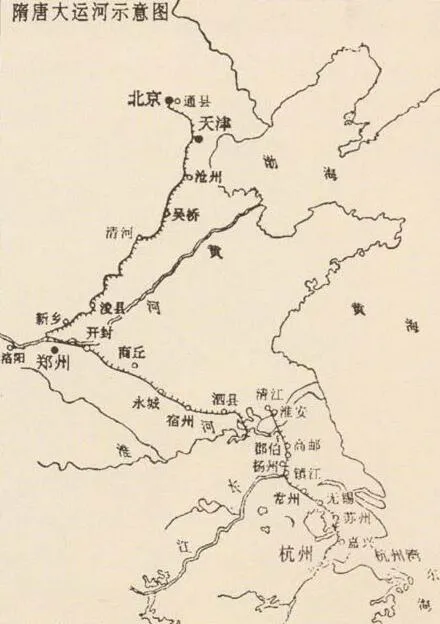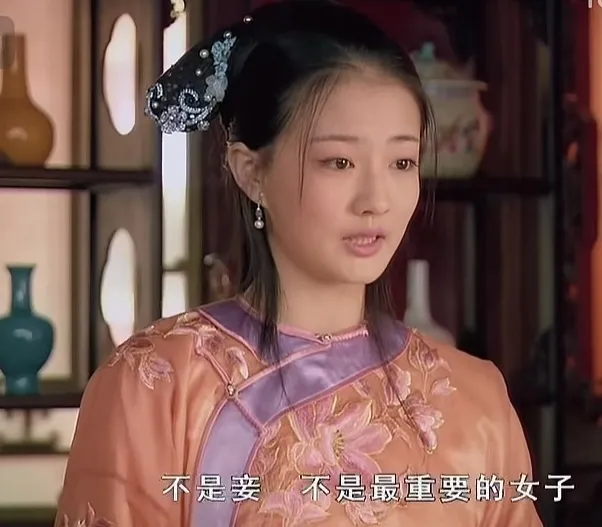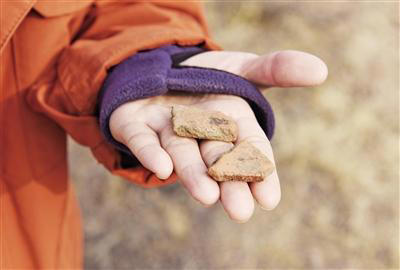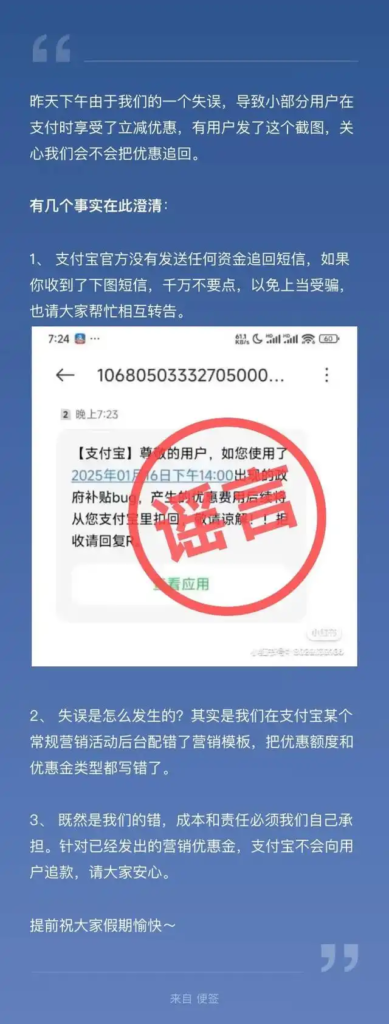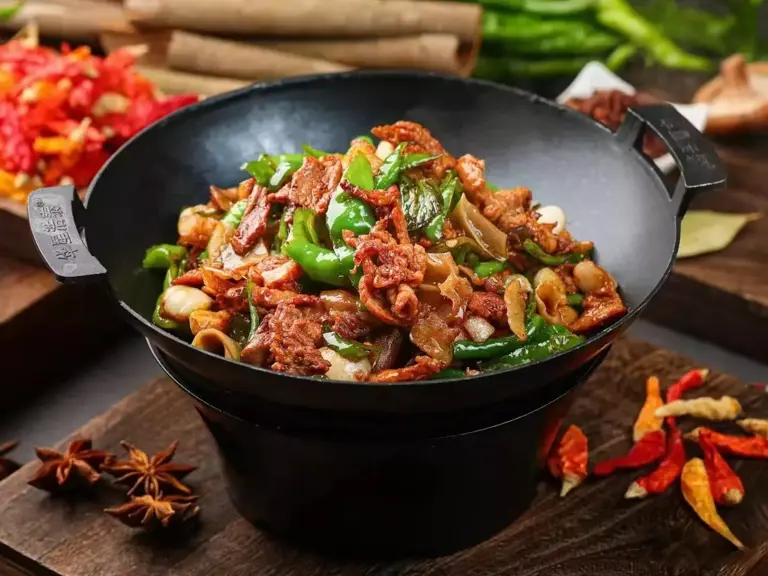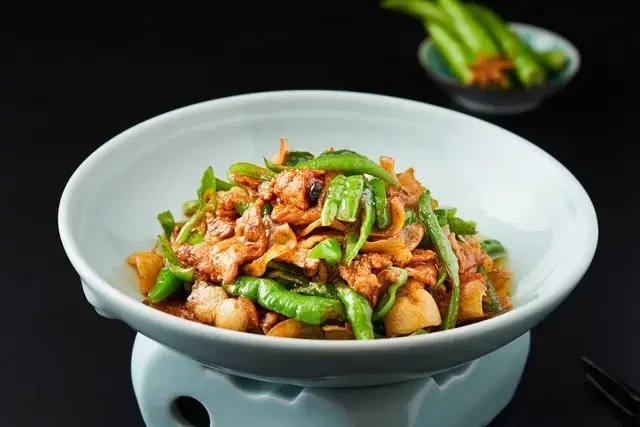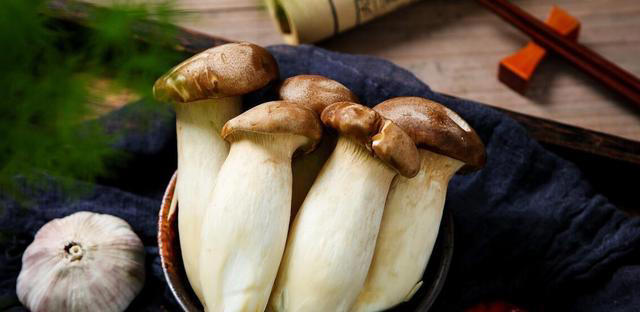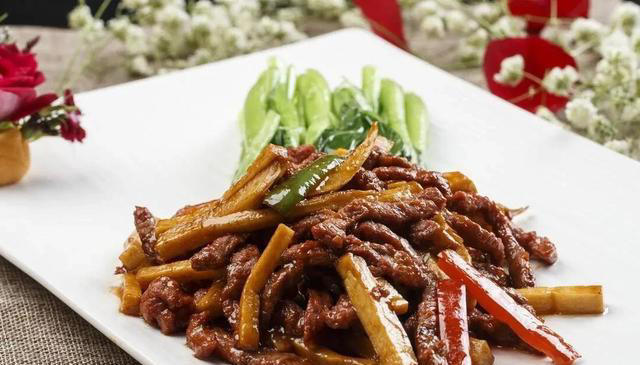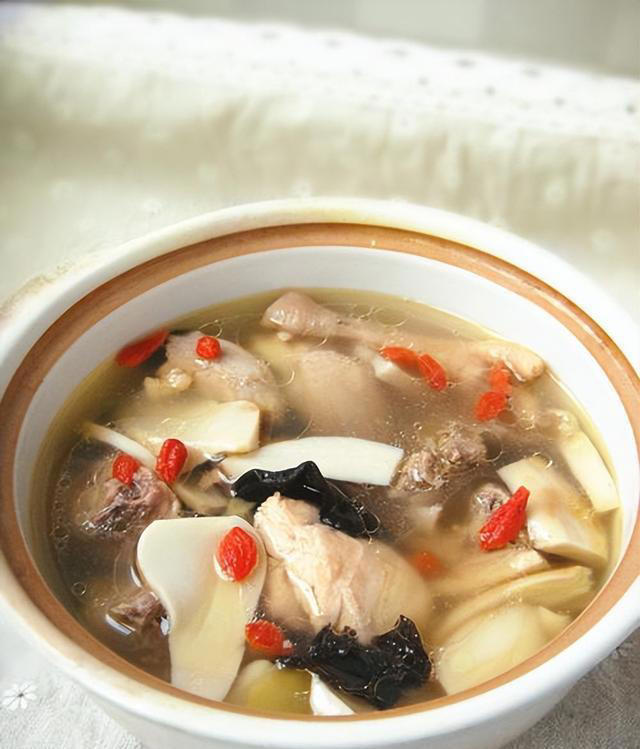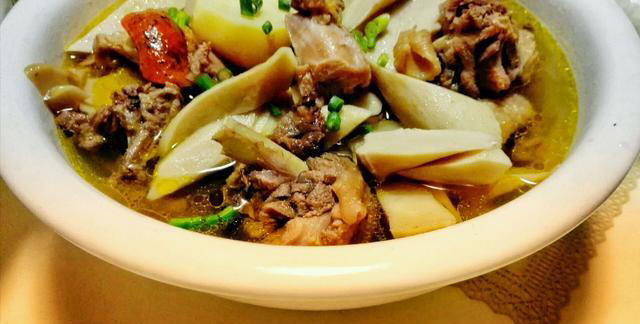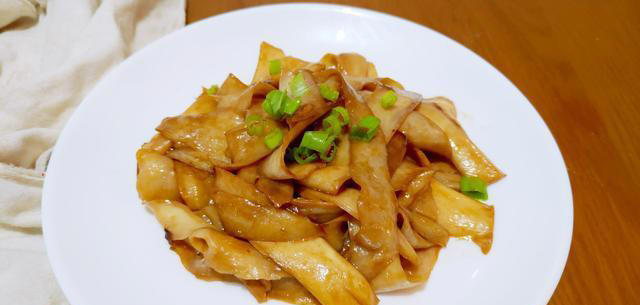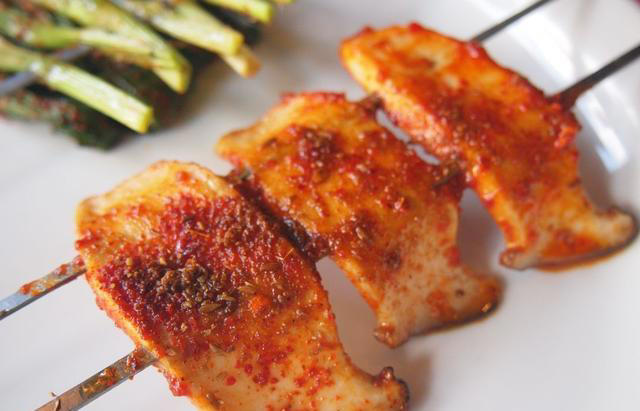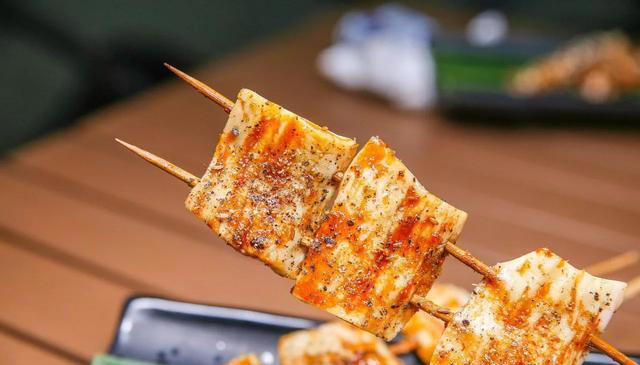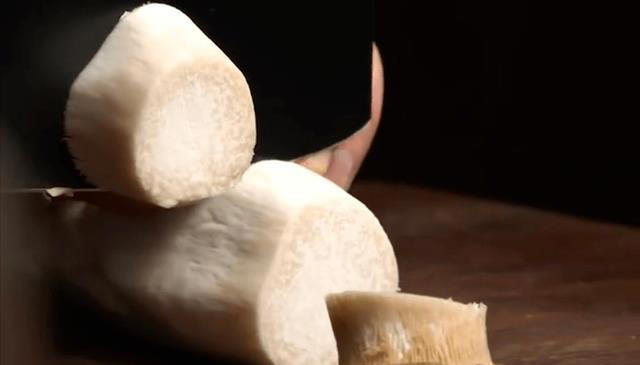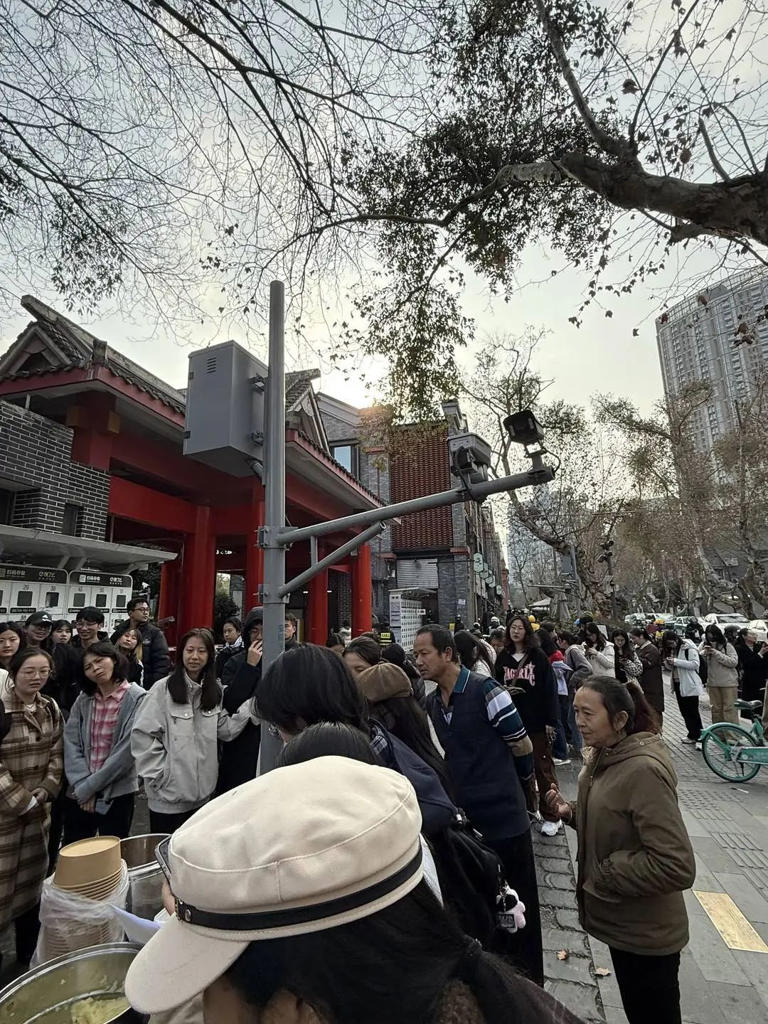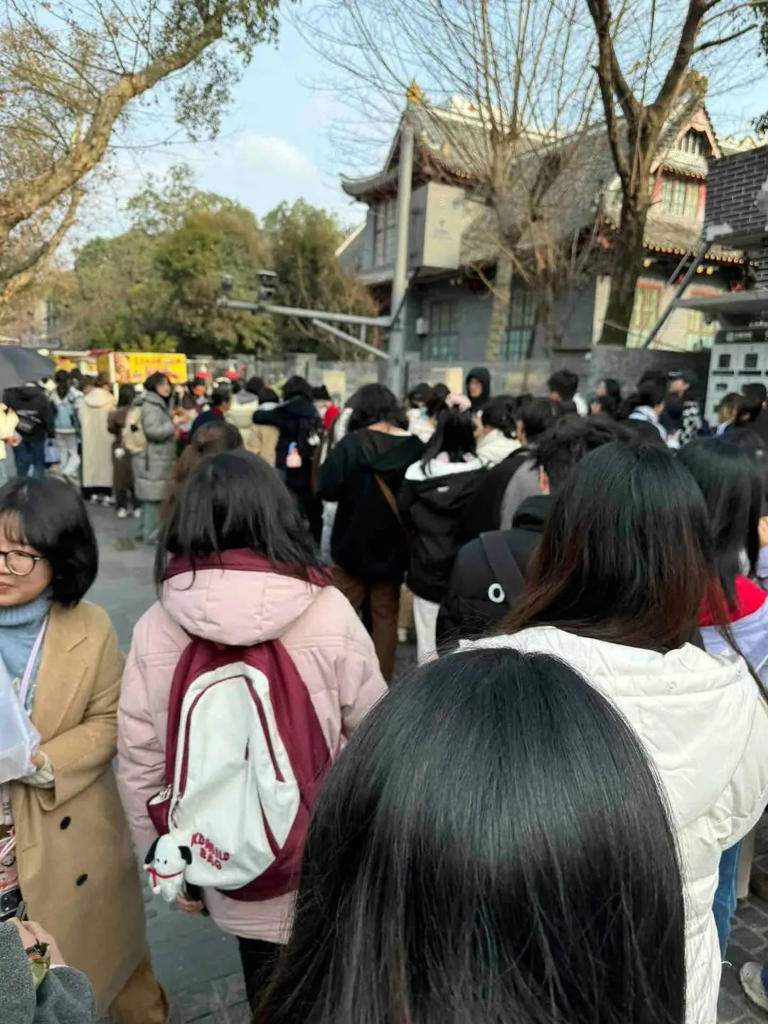In 1218 A.D., since the fall of Zhongdu, Yelu Chucai, an official of the Jin State who had temporarily lived in the empty gate to participate in Zen and retreat for three years, was recruited by Genghis Khan to his side because of his reputation for being good at divination and proficient in astrology, and officially entered the Great Mongolia.
Fourteen years later, in the first month of 1232 AD, the Mongol army besieged Jin Bianjing, and Yelu Chucai, who had a little status beside the Great Khan of Ogedai and called himself Zhongshu Ling, sent a letter to the Jin court, which was on the verge of collapse, and asked to hand over a group of officials and celebrities.

White glazed engraved cockscomb pot. Source/National Museum
On the first day of the first month of February, Jin Aizong Wanyan Shouxu specially summoned the Yelu brothers in the Longde Palace, hoping that they would try their best to promote peace in the Mongolian army camp.
Yelu Shancai did not go out of the city by order, but threw himself into the water and martyred the country, and Mourning Zong was “shocked” after hearing about it, and posthumously awarded him the title of Shangshu of the Ministry of Industry and the General of the Dragon and Tiger Guard; Yelu was ordered to leave Bianjing, but he did not defect to the third brother, but lived in Zhending and died with the remnants.
The three Yelu brothers’ very different fates truly reflect the three fateful choices that the scholars were forced to face at the time of the turbulent Jinmeng change, and the Khitan people, who were deeply influenced by Han culture, naturally could not get rid of this situation.
Historical legacies
In the seventh year of Jin Mingchang (1196, the second year of Song Ning Zongqingyuan), the right prime minister Wanyan Xiangbei conquered Tatar, and recruited the Kereh tribe to take off the neighbor Lehan and the Qiyan alliance Temujin Khan to attack together, and the tripartite alliance won a complete victory in the battle of the Hulizha River.

Khitan army. Source/Documentary “General History of China”
Because of the merits of this battle, Kereh’s detached neighbor Lehan was crowned king by the Jinting and became famous in the annals of history as “Wang Han”, and the little Khan Temujin also obtained the official position of “Zawu Tihuli”. And the canonization envoy who went to the grassland was the Khitan Yelu Ahai.
Yelu Ahai is a native of Huanzhou, and his father and ancestors were all officials in the Jin Kingdom. Because he could speak many languages, he was sent as an envoy to Kreh. In Kereh, Ah Hai met Temujin, who was “abnormally looking”, and thought that he was not willing to live under others for a long time, so he decisively made the most risky choice in his life: to follow the ambitious Temujin to fight the world.
The new guests and hosts had a great conversation, and Yelu Ahai gave Temujin a detailed account of the internal situation in Ginting: “If you don’t have a good time, you will be extravagant, and you can wait for death.” “Plant a seed in the heart of the new lord to attack Ginting.
The following year, Yelu Ahai again sent an envoy to the Kereh tribe, and took his younger brother Yelu Bald, abandoned his wife and children to join the new lord, and after that, their brothers participated in Temujin’s campaign to unify Mongolia, and shared the weal and woe with Temujin, drank the water of the Banjuni River, and became one of the princes of the Mongol conquest.
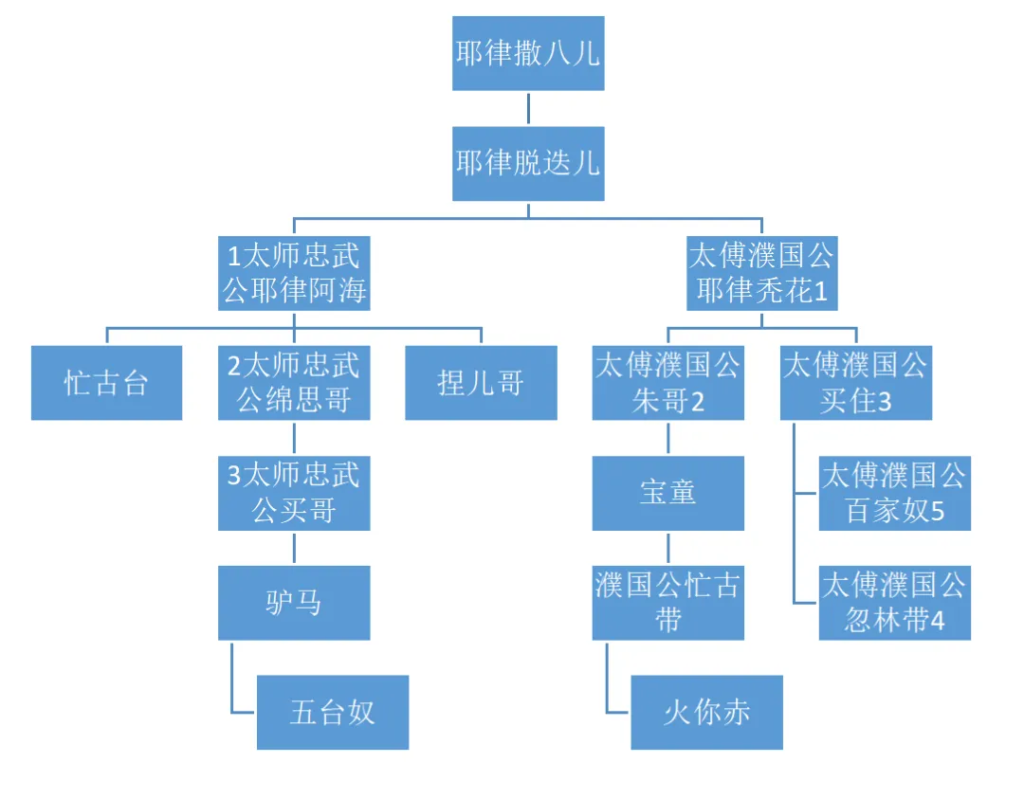
A brief table of the lineage of the Jeruahai family, monkey watching
As an official of the suzerain, why did Yelu Ahai join a vassal who was still in the reckless stage? Of course, this is due to his depression in Jinting, but the main reason is the problem left over from history.
Since the Khitan general Yelu Yujian was killed because he could not bear Jinting’s suspicion and attempted rebellion, Jinting has completely torn through the pretense of Huairou towards the Khitan remnants. Ginting’s attitude towards the Khitans changed from the initial appeasement and co-optation to oppression and exploitation. Although there was a short-term buffer for Wanyan Liang, the king of Hailing, who regarded himself as the holy lord of the world, as Jin Shizong’s Wanyan Yongzu and grandson intensified their oppression and discrimination, the Khitan remnants rebelled frequently, forming a vicious circle of mutual cause and effect, and it also became a threat that could never be eliminated within the Jurchen rule.
Therefore, when Temujin’s ambition to unify the plateau skyrocketed, the attitude of some Khitan people really made Jin Shizong say – “At different times, there may be border provocations, how can the Khitan be willing to be with me?” Sure enough, there were many Khitan remnants like the Yelu Ahai brothers who became the instigators and pawns of the Mongols in attacking Jin.
In the traditional impression, the Khitans surrendered to Mongolia more in the Mengjin War and fewer continued to be loyal to Jinting, in fact, this is a stereotype, and there are actually not a few Khitans who are loyal to Jin.
The political attitude of the Khitans in the Mengjin War can be divided according to the geography of their residence:
The Khitans, who lived in the Liaohe homeland or moved to the northeast and other places, and continued to maintain their traditional nomadic lifestyle to a certain extent, were the most severely subjected to the economic oppression and political persecution of the Jinting, and their anti-Jin sentiment was also the strongest. For example, the Jeruahai brothers, the shifter, and so on.
The Khitans who stayed in the core area of Jurchen rule were relatively lightly exploited, and they had close political ties with the imperial court, and the attitude of this part of the Khitans towards the Jin court was to support allegiance, and even if they later entered the Mongols, they could not bear to condemn the old masters, such as the Yelu Chucai brothers.
So, when the era of great change came, what choices did the Khitans, who had fallen from the ruling class to the ruled class for a hundred years, make?
Different choices
When the Mongols marched southward, the movements of the Khitans can be divided into four categories:
(1) Raising troops against Kim and seeking independence;
(2) Surrender to the gold;
(3) allegiance to Ginting;
(4) Cast Song.
In the first month, in the first year of Jin Chongqing (1212, the fifth year of Song Jiading and the seventh year of Genghis Khan), he raised troops in Long’an, “a few months to more than 100,000”, proclaimed himself the marshal of the capital, and sent the Mongols to form an alliance with Temujin. In March of the following year (1213), he was called king, the country was called Liao, and the year name was Yuantong, that is, the Eastern Liao Kingdom.
The second type of Khitan people who turned their backs on the gold and surrendered to Mongolia can be subdivided into four types:
The first is to refuse Shijin and take the initiative to attach himself to Mongolia, represented by Yi Ra Jian Er and Wang Xun.
The Bazhou people who are “young and ambitious, strong, and resolute and strategic” have always been dissatisfied with Jin, and have repeatedly refused Jinting’s recruitment and award, hoping to avenge their homeland. After hearing that Temujin had raised troops to the south, he thought that “it is time to avenge the country”, so he led more than 100 people from the pro-party to join Temujin and offered ten strategies to destroy Jin. Temujin admired him very much, gave him the name Sain Bijachi, and made him the marshal of Bazhou.
Wang Xun’s original surname was Yelu, and his ancestors took refuge in Liaoxi, so he changed his mother’s surname. Mengjin war, Heshuo chaos, the strong and strong support the public base, Wang Xun to protect his hometown also gathered troops to protect himself, between the ten months, “recruit the remnants to more than 100,000”. Mu Huali passed through Liaoxi, Wang Xun took the initiative to attach, and Mu Huali appointed him as the marshal and the leader of Yi and Sichuan.
The second is that there was no Shijin, but he was captured by the Mongols, and Shijin, who was recruited by the Mongols in the occupied area, represented by Yelu Chucai and Shi Mo Haolu.

The image of Yelu Chucai in film and television dramas. Source/Screenshot of the TV series “The Legend of Kublai Khan”.
After Jin Xuanzong moved the capital to Bianjing, Prime Minister Wanyan Chenghui stayed in Zhongdu and recommended Chu Cai, who was then the same governor of Kaizhou, as his subordinate official. After that, the fall of Zhongdu, Chenghui martyrdom, as a petty official Chu Cai did not follow the martyrdom, nor was he among the officials who opened the door to surrender, but under the recommendation of the former teacher Chenggong monk, worshiped the monk Wan Song Xingxiu as a teacher, escaped from the world and participated in Zen for three years, after being recruited by Temujin, “white hemp once the edge of the world comes”, Chu Cai, who is conceited as a “craftsman who governs the world”, in order to realize his political ideals, immediately set off for “Wanli Longting to pay homage to the Son of Heaven”.
Like Yelu Chucai, who is famous for his good divination, Shi Mo Haolu, who is also a technical talent, is a cook, and after being captured, he stayed with Temujin as an imperial chef, and was dragged away, and the family became an old slave of the tow mine system for generations.
The third is to first Shijin, and then take the initiative to carry the gold to Meng, represented by Yelu Ahai, the Bald Brothers, Shi Mo Yexian, Shi Mo Ming’an, Shi Mo Di Er, etc.
Shi Mo also did not have Shi Jin in the records of the Yuan History, but the earlier Shi Mo Ye Xian Shinto Tablet clearly recorded that he first “Shi Jin was the translator”, and then “moved to the northwest road to recruit Mu Guan, and then worshiped the commander with military merits”. Combined with the comprehensive analysis of historical data, it can be seen that Shi Mo was originally supposed to be Shijin, and later his descendants changed to say that his family did not eat gold for generations and tried to restore the country day and night because of the influence of official education in the south, in order to whitewash the behavior of the ancestors and rebels.

Zhenyou Tongbao. Source/National Museum
However, perhaps it is precisely because he was an official in Jinting first that he was more aware of the corrupt and incompetent nature of the Jin nobles, and when Temujin raised troops to the south and was invincible, he also first felt that Jinde had declined, and the mandate of heaven was in Temujin, and “those who rebel against the sky are ominous”, so he took the initiative to surrender, and made a strange plan to take Jin Tokyo alone, and made great contributions, worshipping the imperial doctor and the general.
Shi Mo Ming’an is also a native of Huanzhou, in the recruitment of Su Shilie nine catties as a general, before the battle of Yehuling, self-reliance on the nine catties of soldiers, arrogantly let Shi Mo Ming’an to ask Temujin to raise troops to rebel against Jin reasons, Ming’an thought that the Jin army could not win, saw Temujin surrendered, and after Temujin swept the east and west roads in the clouds, he wanted to leave his troops and return to the north, advised him to take advantage of the victory and use troops to take the whole of North China.
Shi Mo Dieer is the civil official of Pingqu Water Village in Bazhou, Mu Huali led the army to Bazhou, and Di Dieer surrendered without a fight, and was promoted to a thousand households by Mu Huali.
The fourth is Shijin, who was defeated during the resistance to Mongolia, or saw that the Mongolian army was strong and surrendered, represented by Shimo Gaonu, Shimo Chou Nu, etc.
Weining’s guard general Shi Mo Gaonu, in the face of the siege of the Mongolian army, “knew that he could not be the enemy”, so he and his colleague Liu Bolin and others surrendered to the city, and were awarded a thousand households, Peijin Fu.
Gubeikou Tunshu thousands of households stone wipe ugly slaves, in the case of the Mongolian army going south, the main general fled, led the army of 3,000 forces to fight the Mongolian army, after the arrow in the chest, then switched to surrender, the Mongolian army was able to drive straight in, the ugly slave acted as a guide, captured Ping, Luan, Tan, Shun, Shen, Hebei and other states, was awarded the title of Danzhou military and civilian marshal by Temujin.
The third group, the Khitans who are loyal to Jinting, can be divided into those in the court and those in the opposition:
Those who served in the court were represented by Yelu Discernment, Good Brothers, Shifting Pua, Shifting Slaves, and Shima Shiji. Among them, Yirapua is the most well-known, he is a cronie of the Qiandi of Aizong, and he is highly trusted, “the great plans of the military state are mostly decided”, and even the famous Jurchen general Wanyan Heda has to look at the face of Yirapua to speak. There are also all the house slaves who moved to the house, and they were tired of the military exploits and recruited envoys from Hejian Road, and they were given the surname of the country and sealed the Duke of Hejian, which was one of the nine feudal dukes.
Those in the opposition are represented by the blessings of the monks and so on.
The fourth type of defection to the Southern Song Dynasty (on the occasion of the Mengjin War), the author found only one case, that is, the Dengzhou Jiedu envoy moved to the second year of Tianxing (1233, the sixth year of Song Shaoding, the fifth year of Yuan Taizong) in April, After Bianjing descended to Mongolia, the city was raised to the Song Dynasty.
respective endings
The choice is different, and the ending is naturally different.
On the occasion of the Jin Yuan, among the four choices of the Khitans, the most embarrassing is to choose the group loyal to Jinting, they will either die on the battlefield or die for the country, and the best outcome is to retire to old age.
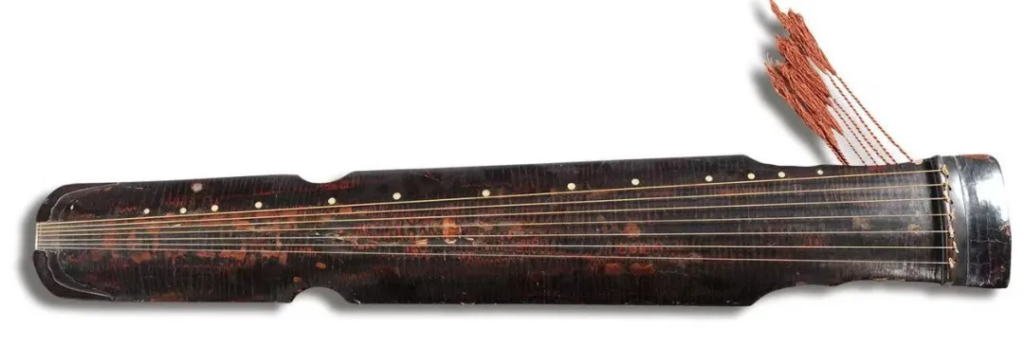
The lyre of “Stone Stream Knocking Ice” was once collected by Yelu Chucai. Source/National Museum
As mentioned above, Yelu Chucai’s eldest brother Yelu Biancai, at the beginning of the Mengjin War, was ordered to defend Dongping, was sent to the Mongolian army to negotiate peace, and was detained and exiled to the north. Later, he followed Nandu and served as the deputy commander of the soldiers and horses in Zhongjing, but because of his disobedience to the magnates, he was demoted to the Wumiao Command. After being asked for by Yelu Chucai, the third brother of the enemy country, he was still unwilling to betray Jinting, and he was determined to die with the remnants of his life. His second brother Yelu Shancai was even more loyal to the Jin Dynasty, and after the third brother asked for it, he directly threw himself into the water and died in the country.
Jin Aizong’s most relied on cronies to move to Pua, although Zhi Da is sparse and stubborn, in the series of offensive and defensive battles to attack Jin, as a commander, he refused the correct advice of other generals several times, so that he delayed the defeat of the fighter in Sanfeng Mountain, but he was loyal to Jin, refused to surrender after being captured by the Mongolian army, and died for his country, relying on integrity to save a little reputation for himself.
The Anhua army made the move to ancient and Nirvana, and the Mongolian army fought in Mizhou, he led the army to fight desperately, even the neck of the arrow, but also did not retreat, and finally died on the battlefield.
The Ministry of Rites and the Hanlin Scholar Shi Mo Shiji, but also a family of three generations have died in the royal affairs, his father Fuzhou Thorn Shi Shi Mo Yuanyi, in the battle with the Mongols “fierce battle for a long time, outnumbered” martyred. Shi Ji and his son Shi Mosong were “sick in the past” in Dajin, but they still did not forget to enter the “words of the medicine stone”, and never abandoned the desperate Jin Aizong, followed him from Pucheng to Guide and Caizhou, and finally died with Caizhou City and father and son.

The Battle of Monjin in the TV series. Source/Screenshot of the TV series “Genghis Khan”.
Zhishi’s Yeluzhen started as a guard, Zhen You led the Guanshan army to resist the Mongolian army, when the Tongguan was captured, he did not want to be humiliated, he stabbed himself with a saber and then jumped into the mountain stream to commit suicide, but was stopped by the big tree and did not die, and was rescued by his own soldiers. After Jin Xuanzong heard about it, he “sent” the imperial doctor to save the seriously injured Yeluzhen, and successively promoted him to the envoy of the Jingyan Army. He retired to stay in Luoyang due to old illness. On March 27 of the first year of Jin Tianxing (1232, the fifth year of Song Shaoding and the fourth year of Yuan Taizong), Luoyang was broken by the Mongolian army, Yelu Chucai rescued him in the chaos and asked him to cross the Yellow River north to submit to Mongolia.
At the time of the crisis, he did not see the wind and make the rudder surrender to Mongolia, but he wrote a letter to offer advice, asking Xuanzong to make peace with the Song people, pacifying Heshuo Shandong, raising troops and accumulating sharpness, canceling the war supervisors in the army, etc., which can really be described as a piece of loyalty.
There is also Hu Ben Duwei who also offered advice to the country, asking the imperial court to pardon the capital crimes of Wuduoshan anti-thief fish Zhang Er and others, so that they can have the opportunity to serve the country. In addition, there are also Xizhou military marshal Shi Mo Jiuzhu, Zhennan Army Festival envoy Shi Mo Zhongwen, etc., in the situation of strong and weak gold, he still insisted on serving Jin Zhengshuo, sacrificed his life to go to the country, and regarded death as home.

The image of Yelu Chucai in film and television dramas. Source/Screenshot of the TV series “The Legend of Kublai Khan”.
From the perspective of God, future generations know the outcome of Jin’s death and victory, and look at this group may feel that they are moths to the fire and bring about their own destruction, but they abide by the Confucian concept of loyalty to the monarch and martyrdom is also the practice of the Confucian concept of sacrificing life for righteousness, and future generations should also have a certain degree of sympathy and tolerance for different life choices in troubled times.
Among the four choices, the one who regrets the most is the migration of the Southern Song Dynasty.
His real name is Glue, hereditary Khitan Meng’an, and he is a member of the Privy Council, and his younger brother Right Xuanhui mentions the point of the Near Service Bureau to move the Sticky Gu, and is one of the cronies of the Mourning Sect. Bianjing fell and the two palaces moved north, and Sticky Gu wanted to hold Aizong hostage to defect to his brother but failed, and Aizong ordered Bai Hua to summon King Deng Junqin. Thinking that Dajin was hopeless, he and Bai Hua asked the Song general Meng Hui (gǒng) to surrender.
Meng Hui led the army into Deng, and personally moved to change the clothes and meet each other with courtesy. After he entered the Song Dynasty, he was renamed Liu Jie, a reformer, and asked him to meet Zhao Fan with a school ceremony, but he thought that he did not get the courtesy he deserved, and he couldn’t help but regret his choice, and in March of the following year, he “died of gangrene”.
And if you want to say that the Khitans are more imposing, you have to choose a few Mongolians, such as the Yelu Ahai brothers and Shimo Ming’an in the era of Genghis Khan.
Yelu Ahai and Yelu Bald were the first Khitans to join Temujin, and Shi Mo Ming’an surrendered during the battle of Yehuling.

Statue of Genghis Khan. Source/National Museum
Ah Hai followed Temujin’s expedition to the west, and for a long time served as the administrator of Samarkan (Xunskan City), and his son Miansige succeeded him as the Taishi, and continued to supervise Samarkan, and later asked to return to Middle-earth, and was reappointed as the Zhongdu Lu Huachi, and was succeeded by his descendants.Bald was worshiped by Taifu, and the general leader was also Nayan, who was the second person to stay in the Central Plains after Mu Huali:
“All the Jurchen troops in charge of ten thousand households, he appoints the head of the thousand households by himself, and then reports. Now several of his sons are in Hehan, and they are respected and still govern their army. (Rasht mistakenly records the bald people as Jurchens)
His children and grandchildren, from Brother Zhu to Baijianu, all took the title of Taifu and Commander-in-Chief.
The titles of Taishi and Taifu of the two families were deprived of their titles when Li Pu’s rebellion and Kublai Khan weakened the power of the princes, and the highest commander of the Han army was also demoted to ordinary Wanhu.
Shi Mo Ming’an was worshiped by the Taibao and served as the highest administrator of the central capital, and he was very authoritative in the Yanjing area, holding the power of life and death, and Yelu Chucai was recommended by Ming’an. After his eldest son did not take office, he was “especially greedy and murderous”, and the “Mengtar Records” called him “Da Ge (brother) Xianggong”.
The authoritarian and arrogant of the Ming Anjia became the target of the rectification of the marquis during the period of the Tuo Lei Prison State, and the Tuo Lei sent the Mongolian pro-Gui Ta Chaer, assisted by Bi Jachi (secretary) Yelu Chucai, “to cure the poor and kill six out of ten.” Xian was not also cut down, and his younger brother Ku Duhua attacked Yanjing and other places to do Shangshu and save trouble, and was also the marshal of the Mongolian and Han armies.

 Entering China
Entering China